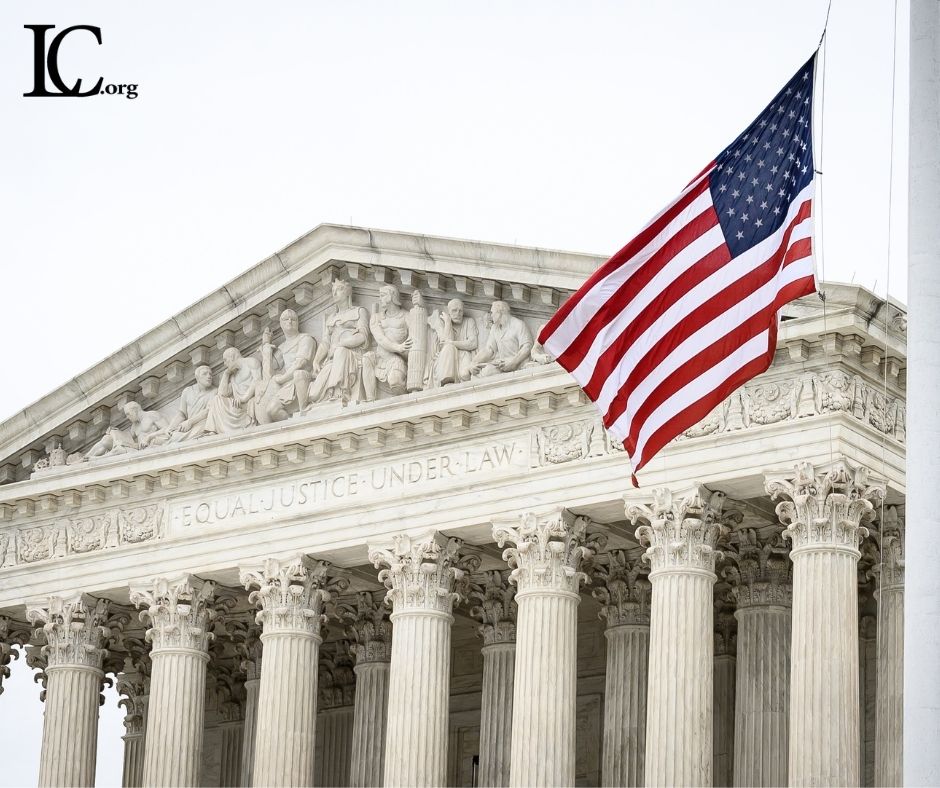The U.S. Supreme Court granted on Friday an emergency request allowing Idaho to enforce its near-total abortion ban in hospital emergency rooms, which temporarily denies a Biden administration effort to force hospitals to perform abortions. The Court agreed to hear arguments in Idaho v. United States in April 2024 to decide whether the Biden administration’s new “guidance” of a 1986 federal law requires abortions in certain emergencies and thus supersedes Idaho’s law that criminalizes most abortions in the state. Liberty Counsel will file an amicus brief next month in this case.
Idaho’s “Defense of Life Act” was enacted in 2020 and took effect when the Supreme Court overturned Roe v. Wade in June 2022. The law makes it a felony for doctors to perform an abortion unless it’s necessary to save the life of the mother.
Soon after Roe’s overturning, Secretary Xavier Becerra of the U.S. Department of Health and Human Services (HHS) issued policy guidance to hospitals stating that the Emergency Medical Treatment and Active Labor Act (EMTALA) of 1986 preempts state abortion laws and requires doctors to perform abortions under a broader set of exceptions than just to preserve the life of the mother. Under EMTALA, Medicare-funded hospitals are required to provide necessary emergency care to pregnant women without discrimination, including if they cannot pay for the treatment.
However, even though EMTALA does not mention abortion, Secretary Becerra interpreted the law as including abortion if the woman’s physician believes abortion is “the stabilizing treatment necessary.” The guidance noted that state abortion laws with more narrow exceptions than EMPTALA are “preempted,” and that physicians “must” perform an abortion if they feel it is “necessary” to resolve an emergency medical condition. Under the guidance, hospitals could lose federal funding for failing to comply.
In August 2022, a U.S. District Court judge blocked Idaho’s abortion ban stating it was more narrow than federal law by only including “imminent” health threats and excluding other “serious” emergencies.
A three-judge panel at the Ninth Circuit Court of Appeals briefly overturned that decision stating even if EMTALA does preempt Idaho’s law, its exemption for the life of the mother was sufficient to keep the laws out of conflict. However, the full Ninth Circuit disagreed and quickly reversed that ruling upholding the district court’s block of the law which set up the U.S. Supreme Court’s Friday decision to keep the law in effect and hear Idaho’s emergency request.
While the Biden administration argues that the HHS “guidance” is just clarifying existing federal law, the Idaho legislature and state officials called the disputed HHS guidance an “unauthorized power grab” and stated it would have been “odd” for Congress to negate “state abortion laws” in a provision that “does not even mention abortion.”
Now that SCOTUS has allowed Idaho’s protections for unborn babies to remain in effect, doctors who perform abortions are subject to penalties ranging from two to five years in jail, fines, and suspension or revocation of their medical license.
The High Court’s decision to take the case comes just days after a court ruling in a nearly identical dispute in Texas. Last week, the Fifth Circuit Court of Appeals ruled the Biden administration cannot use EMTALA to override Texas’ near-total abortion ban and force Texas doctors to perform abortions. In Texas v. Becerra, a three-judge appeals court panel called the guidance “unlawful” and unanimously upheld a lower court ruling that struck down the guidance.
Authoring the ruling, Circuit Judge Kurt Engelhardt determined that EMTALA does not discard the unborn child during a life-threatening medical emergency, and he noted that the law requires hospitals to “stabilize both the pregnant woman and her unborn child.”
Judge Engelhardt wrote, “We agree with the district court that EMTALA does not provide an unqualified right for the pregnant mother to abort her child especially when EMTALA imposes equal stabilization obligations. The question before the Court is whether EMTALA, according to HHS’s Guidance, mandates physicians to provide abortions when that is the necessary stabilizing treatment for an emergency medical condition. It does not.”
“EMTALA does not mandate medical treatments, let alone abortion care, nor does it preempt [state] law,” stated Judge Engelhardt.
Dr. William Lile, who is board certified in Obstetrics and Gynecology and who has delivered thousands of babies, told Liberty Counsel that the goal in treating a pregnant woman is always to preserve the lives of both the mother and her unborn baby when possible.
Dr. Lile stated, “It’s the delivery of the baby that cures the mother’s condition, it’s not the stoppage of baby’s heart and the killing of the baby that helps the mother.”
Liberty Counsel Founder and Chairman Mat Staver said, “Federal law does not preempt state abortion laws, nor does it require the killing of an innocent life. Emergency rooms are only required to stabilize patients, which includes the unborn patient. Treatment, and certainly destroying a human life, is in no way required by federal law. This so-called “guidance” by the Secretary of Health and Human Services is another lawless act of the Biden administration that will be struck down.”















